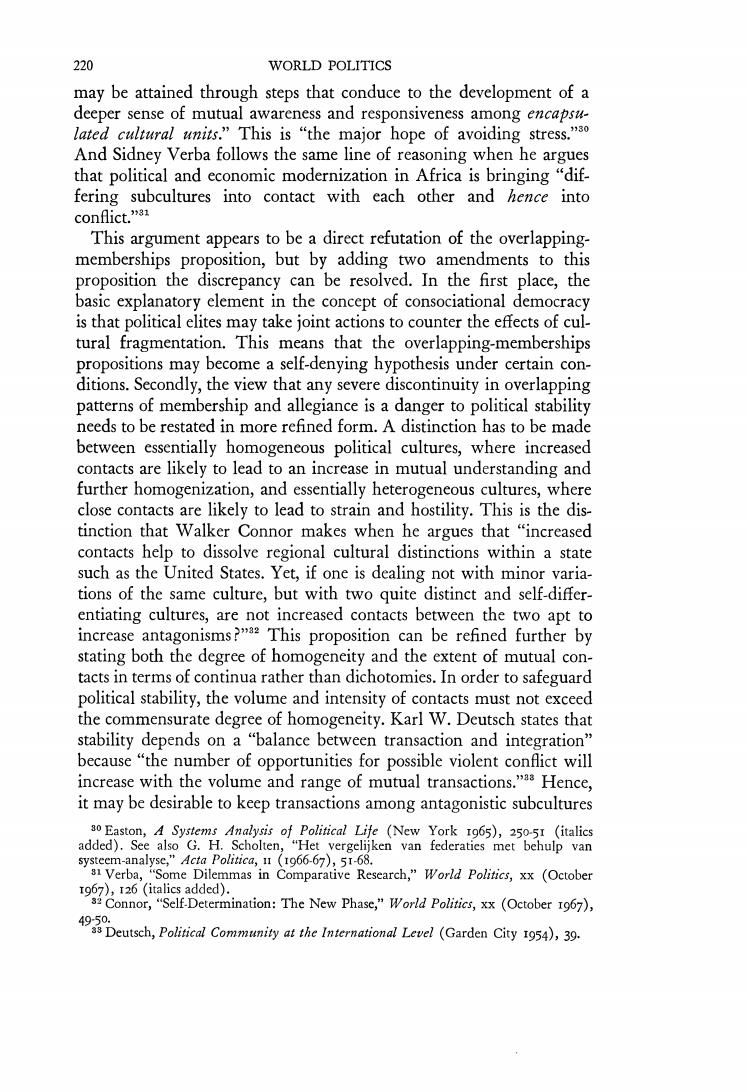正在加载图片...

220 WORLD POLITICS may be attained through steps that conduce to the development of a deeper sense of mutual awareness and responsiveness among encaps#- lated cultural units."This is "the major hope of avoiding stress." And Sidney Verba follows the same line of reasoning when he argues that political and economic modernization in Africa is bringing "dif- fering subcultures into contact with each other and hence into conflict.”a1 This argument appears to be a direct refutation of the overlapping- memberships proposition,but by adding two amendments to this proposition the discrepancy can be resolved.In the first place,the basic explanatory element in the concept of consociational democracy is that political elites may take joint actions to counter the effects of cul- tural fragmentation.This means that the overlapping-memberships propositions may become a self-denying hypothesis under certain con- ditions.Secondly,the view that any severe discontinuity in overlapping patterns of membership and allegiance is a danger to political stability needs to be restated in more refined form.A distinction has to be made between essentially homogeneous political cultures,where increased contacts are likely to lead to an increase in mutual understanding and further homogenization,and essentially heterogeneous cultures,where close contacts are likely to lead to strain and hostility.This is the dis- tinction that Walker Connor makes when he argues that "increased contacts help to dissolve regional cultural distinctions within a state such as the United States.Yet,if one is dealing not with minor varia- tions of the same culture,but with two quite distinct and self-differ- entiating cultures,are not increased contacts between the two apt to increase antagonisms?"This proposition can be refined further by stating both the degree of homogeneity and the extent of mutual con- tacts in terms of continua rather than dichotomies.In order to safeguard political stability,the volume and intensity of contacts must not exceed the commensurate degree of homogeneity.Karl W.Deutsch states that stability depends on a "balance between transaction and integration" because "the number of opportunities for possible violent conflict will increase with the volume and range of mutual transactions."Hence, it may be desirable to keep transactions among antagonistic subcultures 30 Easton,A Systems Analysis of Political Life (New York 1965),250-51 (italics added).See also G.H.Scholten,"Het vergelijken van federaties met behulp van systeem-analyse,"Acta Politica,11 (1966-67),51-68. 1 Verba,"Some Dilemmas in Comparative Research,"World Politics,xx (October 1967),126(italics added). s2 Connor,"Self-Determination:The New Phase,"World Politics,xx (October 1967), 4950. ss Deutsch,Political Community at the International Level (Garden City 1954),39